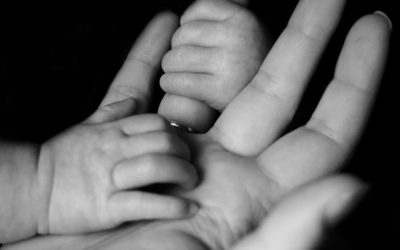Complexity of a Therapist’s Grief
When I received a message from a client requesting a cancellation of session because he had contracted covid, I sent a concerned response asking him to take care and get well soon. I thought I would check in on him by mid-week and see him in our next scheduled session, since he was quite young, I was not overly worried. Sadly, I didn’t envisage that this exchange of messages related to a cancelled session would be our last communication.
Boundaries and Endings
Our profession is an unusual one or so I believe, we are bound by ethical guidelines for our practice in general and in particular when we are faced with challenges in our work. It demands of us to maintain a therapeutic structure and boundary within which we regulate our contact with our clients to serve their best interests. With the right kind of supervisory/peer support, self-care, and knowledge we learn to deal with the inevitable ruptures and repair of a therapeutic relationship. Sometimes therapy does not work out—client’s drop out without giving reasons, end therapy prematurely or we unknowingly disappoint our client’s and they share their disappointments before terminating. We are often prepared for these events even if it leaves us with moments of uncertainty and self-doubt.
Alternately, with many clients who have progressed and have reached a point in their therapeutic quest where they feel ready for closure, we do our best to say good bye and do so in a sensitive and professional manner. We feel satisfaction and celebrate our client’s arrival, though we may feel some sadness of losing this deep attachment we adhere to the moral codes of our profession, learn to accept and let go for the best interest of our client. However, losing our client to a sudden unanticipated death is a deeply complex and disturbing experience and I believe we are left with a loss that’s challenging to process in normative human ways. Very limited literature is available for us to navigate this kind of a tragic ending. Yet it is an ending that many of us have to face at some point in the years of our practice.
Rites of Passage
In my life I have lost a few loved ones and grieved for them, well, given my age that’s quite natural. Whenever I lost a dear one, I would talk to my friends, family members, my therapist, and supervisors and inevitably engaged in both solitary and shared rituals of grief with my loved ones. I opened grey albums with fading black and white pictures set in chronological order that had loosened out of its photo corners. I puzzled over vacant corners from which pictured were missing and wondered about the mysteries I would never unravel. I would open cupboards, old boxes and would sift through forgotten treasures and clothes. I would cry and smile at discovering secrets that were kept like a love poem in fading ink on crumbling paper that my father must have written in his youth. It’s an instinctual need of human beings to create and follow these rites when we are faced with the death of a loved one. These are necessary rituals that help us build back our ability to live and love again.
Different Rituals Different Grief
Losing a client is a different kind of grief, because this profession requires of me that I mourn alone. The ethical and professional boundaries of my profession leave me bereft of exercising these rituals and as a therapist I am isolated in my grief. I cannot socialize with my clients or their family members, cannot ask them how they are doing, cannot offer to share their grief. There’s no funeral I can attend, I cannot offer to cook a meal or stand beside them in their time of loss. Nor can I call common friends to reminisce, cry or laugh in remembrance of my client.
Creating Alternate Rituals
Yet grieving is so important for our daily living and when I heard that he had passed away, I was left with this pain that I wanted to feel, stay with and find some solace. I knew that if I pushed it aside then it would seep into my interactions with my family and in my work. Most importantly I wanted to honor his memory and let him know that he was important to me. I moved between shock and disbelief and slowly went through old messages mostly related to scheduling sessions, interspersed with an odd greeting, a thank you message for a particularly insightful session or something I said or did that had moved my client. In more recent messages there were drawings and graphic art which he had started dabbling in saying that my delight in his work motivated him.
I looked at my client folder that I am not yet ready to move into my closed folders, flipped the pages of my diary in which I still schedule my appointments, with my illegible scrawl that neither me nor anyone else can decipher. I looked at his scheduled appointments, same time, same day across many months.
I cried….
I went back in my memory to the time when he first started therapy many years ago, the regularity with which he turned up for his sessions, his dedication to heal and live a better quality of life. I remembered the first two years when both of us struggled with his fear of trusting people, especially women and skepticism about my care for him. I remembered the few occasions when he expressed his wish that I would have been his mother and recollected occasions when he felt disappointed in me, for not being more available, for going away on a break or having inadvertently said something that caused him pain. As I sat crying, I asked him for forgiveness for having made mistakes, for my limitations in not being more than what I could be and wondering if there was something more I could have done…
Towards the last year of our work together, there was a lightness of existence we shared even when we sat holding his losses. My mind drifted to our last four months when he had reduced the frequency to fortnightly sessions and no longer got upset when I went on a break. By this time, we had established a shared sense of humor, and I was already a witness to his resilience, courage, creativity and pursuit of dreams despite his experience of an arid environment. He had moved a little from his anxious fear of human connections, acknowledged his yearning for it and had made a few friends over the time we worked together. He was engaged in drawings, and paintings that he would show me during our sessions. I also remembered his often-expressed unfulfilled wishes for a partner and his dread that he would never find a girl to love, which came up particularly in the last few sessions. I cried for my imagined loneliness of his death when he was connected to machines and hoped that the medical staff in PPE suites would have held his hand at least for a moment when he struggled to breathe. Although I know that death is the final experience of our existential isolation.
Loving a Client
Few relationships are this profound or intimate because this long attachment fosters a particular kind of love. I loved my client, it’s not something therapists may usually like to acknowledge or talk about because it has implications of countertransference. However, I am not talking about the countertransference love here (which comes from our unrequited relationships), I am talking about the real love which starts developing over the years of work with our clients, listening to their stories, secrets, hurts in relationships, anger, fear, hopes and celebrations. It’s the love that grows when as therapist we try to provide a corrective emotional experience as we carefully navigate the narrow ridge between being a professional and a good enough parent.
This is my note to him to honor our relationship and acknowledge my gratitude for the privilege of having witnessed his vulnerabilities and strengths. I sit here with his story, a soft copy in my computer and the image of his smile in my heart as he would greet me online, his hopes and dreams, his fears and celebrations, till one day I close the file.

Gestaltan Lives
Four Horsemen of Apocalypse and Antidote for Couples
Improving our relationship requires an ability to comprehend the subjective experience of ourselves
Dependency and Relationality
A question that often crops up in my training sessions, especially so when I teach the Post Graduate Students
Suicide Assessment, Interventions, Support
People who are suicidal or depressed are often in intense pain. Their experience of meaning



